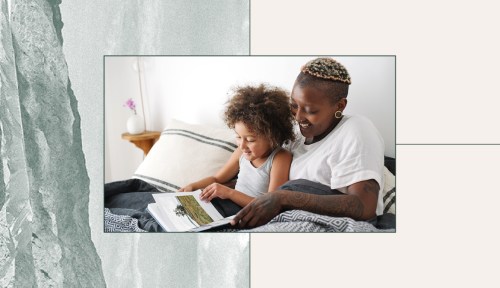‘Climate Change Is Real, and It Has Completely Changed My Mind About Having Kids’
In one survey, 58 percent of women reported that they might reconsider having kids because of anxiety about climate change.

With climate change resulting in rising seas, devastating natural disasters, and disruptions to global food supplies, many people are revisiting the way they live in order to reduce their carbon footprint—the total amount of greenhouse gases connected to an individual or organization. And for a growing number of people, climate change has them wondering whether to have children at all.
For Katie O’Reilly, the adventure and lifestyle editor at Sierra Magazine, becoming a mother had long been part of her life plans. But after a breakup, and as wildfires became more devastating in her home of northern California, she began to think differently about the future that a hypothetical child would inherit. Having experienced several fire seasons, she recalls the thick, black smoke and how the increasing number of natural disasters fed into her climate grief. “I was seeing climate change firsthand in a way that it had always been more theoretical to me before then,” she says. That experience led her to wonder if it was responsible to have children.
O’Reilly is far from alone. In one survey, which tapped nearly 3,000 women and other people with ovaries, 58 percent reported they are reconsidering having children (or more of them) because they’re concerned about the world their kids will inherit. Just over one-third shared that they plan to have fewer kids because of issues related to climate change. Thirty percent said they have considered moving to a different city or state before starting or expanding their family out of concern for climate impact in their current location.
Climate change is a stressor, in combination with other life concerns, that can ignite anxiety, fatigue, sadness, frustration, and anger. The uncertainty of what the world will look like decades from now is undoubtedly affecting how millennials and Gen Zers are planning for the future, says Susan Clayton, PhD, a professor of psychology and environmental studies at the College of Wooster. “Especially for people of childbearing age, one of the ways in which climate change is really affecting them is in these major decisions about the future,” says Clayton, “because, for a lot of them, there’s a lot of uncertainty about what the future will look like.”
Despite societal and familial pressure to have children, Mexico City-based creative strategist Jessica Matos is firm in her decision not to have children. A number of reasons, both professional and personal, have influenced her choice, but the state of the world has been a huge one.
“I’m not just worrying about me; I’m worried about me, my small child or children. There’s a lot to worry about,” says the 34-year-old. “Sometimes, for me, it feels selfish to bring children into the world without really pausing to think: Am I actually prepared for such a big responsibility knowing the way that the world is operating in right now, and the things that we’re going through?”
It’s a worthwhile question, considering how individual choices have far-reaching environmental impacts. But while having fewer children, especially in wealthy countries, would reduce carbon emissions, the government and corporations play a greater role in climate change. In February, the Intergovernmental Panel on Climate Change (IPCC) released Climate Change 2022: Impacts, Adaptation and Vulnerability, which confirms that climate policies need to move beyond planning and into implementation. As the risks connected with climate change become increasingly more challenging to manage, all hands must be on deck to make a significant shift—not just individual people.
Given the ask of countries and industries to address climate change, philosophy experts like Anita L. Allen, JD, PhD believe the individual-centered approach to the issue is philosophically and ethically troubling. “It’s deeply problematic,” she says. “Not only does it offend philosophies that have been a part of our world culture for eons, but it also places an individual responsibility on women.” She notes that to date, due to inequities within reproductive health, not all birthing people have full reproductive rights. “We should be trying globally to empower women to make their own choices,” she adds.
As for O’Reilly, the 37-year-old realized she would regret letting fear keep her from having children. She and her fiancé moved to the woods of northwest Montana, where wildfires are less common, and are expecting their first child. “I got away from the mindset of thinking because this is so traumatic and horrible for me, it therefore necessarily will be for my child,” she says of climate change. “I thought that’s sort of unfair of me to assume that on behalf of my hypothetical kid, and I think that incoming generations will be better equipped to kind of synthesize that and handle it.” When their daughter is old enough, they plan to have age-appropriate conversations about the natural world—and the threats to it, however they may unfold.
Sign Up for Our Daily Newsletter
Get all the latest in wellness, trends, food, fitness, beauty, and more delivered right to your inbox.
Got it, you've been added to our email list.








